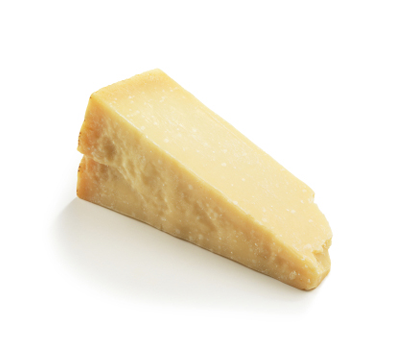Parmesan cheese
Definition
Parmesan may refer to parmigiano-reggiano, an Italian hard cheese produced in Italy. This is made with raw milk and salt, with the use of whey and animal rennet as a starter, then aged. Parmesan, outside of Europe, may also refer to imitation parmigiano-reggiano, a processed cheese food typically sold as granules.
Health considerations
Imitation parmesan typically contains a variety of additives outside of milk and salt. Both true and imitation parmesan have a high sodium content. Parmigiano-reggiano has the second highest content of glutamate of any naturally produced food. It is also a source of protein, calcium, phosphorus, and some B vitamins. Imitation parmesan is available in reduced-fat versions and has a different nutrient profile. See: Sodium.
Keep in mind
The term parmigiano-reggiano can only be used on cheeses produced in specific regions of Italy; Europe also protects the use of parmesan. In the US parmesan can refer to imitation parmigiano-reggiano produced outside of Italy. Parmigiano-reggiano is not suitable for vegetarians as it is manufactured with animal rennet.
May be found in
Sold as a wedge, round, or pre-grated or -shaved. In salad dressings, pasta sauces, pesto, pizza, soups, salads, risotto
References
Parmigiano Reggiano
Dining Chicago
Handbook of cheese in health: Production, nutrition and medical sciences
Customs and International Trade Bar Association
Alternative Spellings and Names
Parmigiano-reggiano, parmigiano, Italian hard cheese, pamesello italiano


